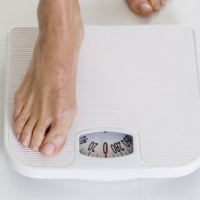The Link between Obesity and Depression
According to recent data, over one-third of adults in the US are obese, while an estimated 7% suffer from depression. However, while both of these conditions are extremely prevalent, this is not enough to point to a link or connection. After all, obesity is, for the most part, connected with the digestive system while depression centers on the psyche. In reality, this is an oversimplified way of looking at the two problems. Since our daily activities usually include lots of diverse habits and interactions, many social and behavioral factors unite obesity and depression, just as there are biological factors that do the same.
If we look at the two conditions from the point of view of society, both are isolating. People with depression are misunderstood by those who don't suffer from it, and often find it hard to connect with people who don't understand their plight. Obese adults are also often isolated in society due to their own lack of self-confidence and self-worth, or due to teasing or bullying by their peers. To top it off, obese people can also experience pains, trouble breathing, sleep problems, all of which only add to their negative feelings and create a perfect combination for depression. Conversely, depressive adults tend to lack motivation for exercise and healthy eating habits, letting themselves go and gaining weight. Every case of depression and obesity is different, but the scenarios described above are fairly common, and the connection is certainly worth considering.
If we look at the problem from a more scientific and biological point of view, we can also find a link. According to researchers, there is a set of hormones that play a crucial role in the development of both obesity and depression, and they are known as the HPA Axis. These hormones are directly involved in the body's stress responses and how it handles stress. For example, the HPA axis releases cortisol to combat stress, but cortisol is also known for facilitating buildups of fat in the abdomen. It is also known that experiencing long-term and continuous stress often leads to depression.
As strange as it may seem, the link between the two health problems also becomes evident when you try to treat them. For example, one of the most common forms of treatment for obesity is a stricter diet. While this does help lose weight, it also worsens mood and diminishes happiness. Alternatively, a common form of depression treatment - antidepressants often cause changes in the metabolism and appetite, which cause weight gain. Fortunately, there is also a positive link between obesity and depression - both can be tackled with exercise and stress reduction.
Related Articles
-
What Are The Best Natural Hunger Suppressants?
-
Drink Fruit and Vegetable Juices Help for a Healthy Diet!
Before you start this diet you should know it`s good to drink the juic
-
Paraslim Force Reviews - Four Weeks To A Leaner, Stronger Body
For a lot of different reasons, the past two decades have seen america
-
Ayurslim is effective polyherbal formulation that regulates your fat production and utilization - pillssupplier
Himalayas Ayurslim is a clinically demonstrated, protected and regula
-
Navy Seals Training Program - Tacfit Commando
Navy Seals training program is perceived to be one of the most challen
-
Learn How to Improve Your Golf Swing Fast
Improving your golf swing is not hard to do but knowing the technique
- DON'T MISS
- The Fat Burning Furnace Does It Work
- Learn to Lose 10 Pounds A Week
- The Promise of HIGH Satiety
- Gastric Bypass Surgery - What Are The Risks?
- 10 Killer Tips For Rapid Weight Loss
- Diet Plans & Weight Loss Programs
- Tips to Shed a Few Extra Pounds!
- An Effective Weight Loss Supplement
- A Startling Fact About Losing Dangerous Belly Fat -- Without Exercise
- Fat Burning Furnace Ultimate Free




